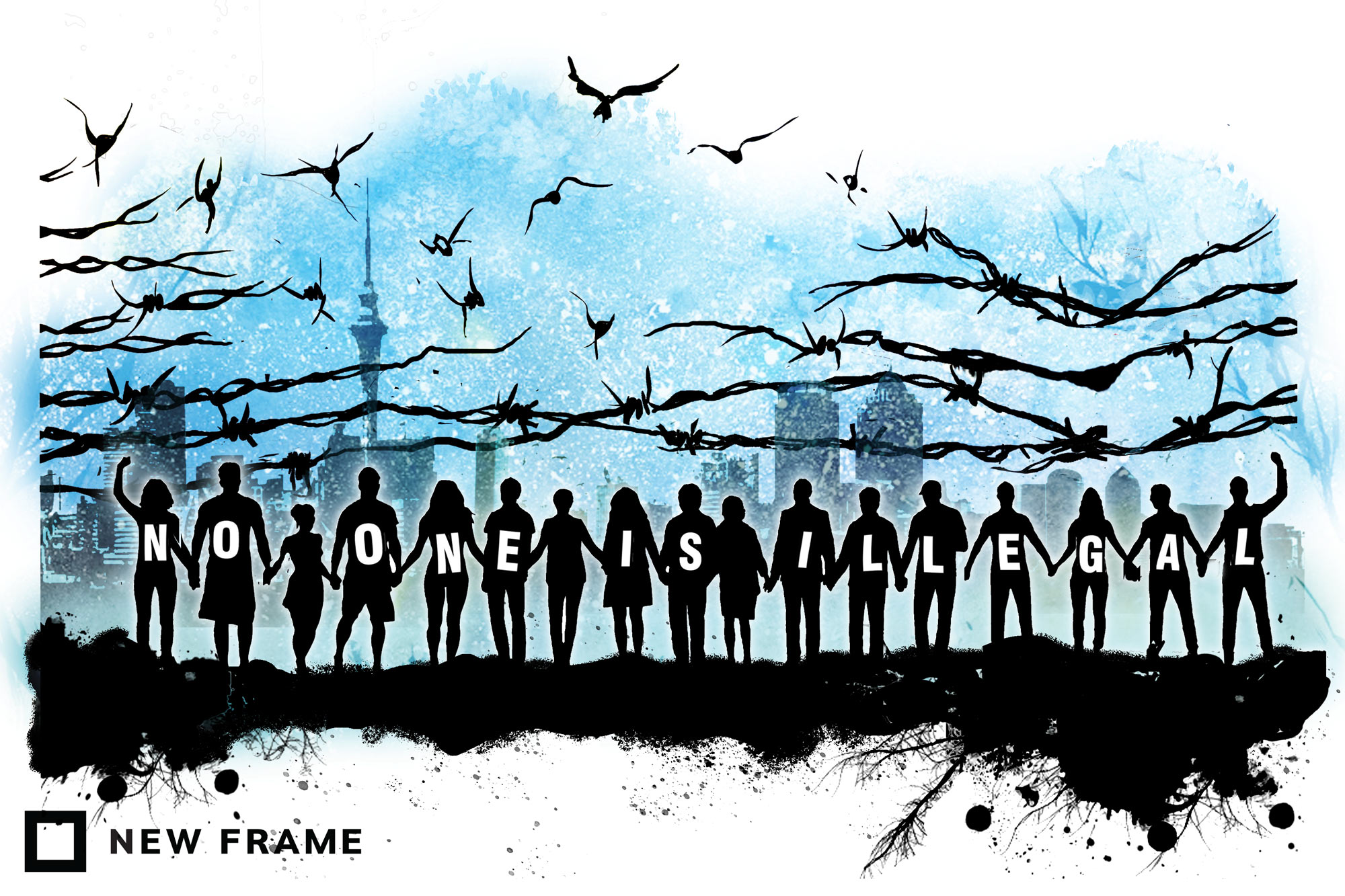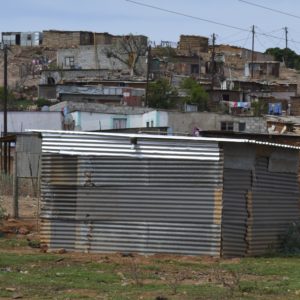Xenophobia never rests
The possibility that thousands of Zimbabweans will find their presence in South Africa rendered illegal within a year demands a response rooted in organised solidarity.
Author:
10 December 2021

The Department of Home Affairs issued just short of 200 000 Zimbabwean Special Dispensation Permits (ZSPs) in 2014. These allowed Zimbabweans to live, study, work and conduct business legally in South Africa.
Later, in 2017, the department introduced the Zimbabwean Exemption Permit (ZEP). Only those with ZSPs that expired at the end of December 2017 could apply. It was not available to first-time applicants and ZEP holders did not qualify for permanent residence.
Related article:
The ZEP was only valid for four years and these permits expire this month. There is now a 12-month grace period in which holders can apply for other permits or visas, such as work or study visas. When this grace period ends, the remaining ZEP holders are expected to leave the country or face possible deportation.
The South African state runs a ruthlessly exclusionary and, in economic terms, irrational and self-destructive migration regime. It is animated by crude chauvinism and implemented by a systemically corrupt and often abusive state apparatus. This means that many Zimbabweans who have built a life in South Africa through the ZSP and then the ZEP will be forced to work undocumented. They will be more vulnerable to their bosses and the police, and face the constant risk of deportation.
Xenophobic populism
A number of commentators have suggested that the department’s failure to renew the ZEP, or to make better arrangements to include Zimbabweans living and working in South Africa, is a response to the recent electoral successes of Herman Mashaba’s xenophobic ActionSA party. This may or may not be so, but it is certain that the ANC has long harboured deeply xenophobic currents. In KwaZulu-Natal, this has sometimes been entwined with dog-whistle politics in which references to people’s presumed province of origin take the form of veiled references to ethnicity.
The ANC’s kleptocratic radical economic transformation faction has developed these currents and practices into a much more explicit political platform. Reckless and shrill forms of speech have been directly linked to street and other forms of violence, such as attacks on trucks, that have cost lives and inflicted serious economic damage.
Related article:
There are a number of other political actors trying to build popular constituencies around xenophobic politics. They range from local projects such as the Forum 4 Service Delivery to the DA with its national reach. The EFF, with its thuggery, machismo, kleptocratic leaders, anti-Indian chauvinism and post-truth posture has a number of elements typically found in parties of the populist Right. But, to its credit, it has resisted the temptation to scapegoat African migrants for the social crisis in South Africa.
Self-inflicted harm
Our migration regime is not only deeply reactionary, rivalling the systems of many right-wing governments elsewhere, but it also puts its impulse to chauvinism before the economic needs of the country. It is often far more difficult for skilled migrants to be welcomed into South Africa than into many of the richest countries in the world. No country as hostile to skilled migrants as South Africa has been under the ANC can run a credible university system, or a competitive economy.
The evidence is also clear that migration in general is good for countries, and in ways that exceed economic benefits. Who could imagine London without Indian and Italian food, Jamaican music and its polyglot intellectual and political life? Johannesburg is no different. The city would be impoverished without Zimbabwean dancehall, Pakistani food and intellectuals from Nigeria, India and elsewhere. Our mean-spiritedness hurts us as well as its immediate targets.
Around the world, xenophobia is central to the politics of the Right, while the Left aims to build a politics rooted in solidarity rather than exclusion and a critique of the economic structures that impoverish people rather than scapegoating migrants. In South Africa, where the language of the Left is misused to justify everything from kleptocracy to state repression, it’s hardly a surprise that xenophobes call each other comrade and talk about defending the revolution.
Solidarity
As long as the politics of the real Left lacks sufficient scale and intensity, the field remains open for xenophobes to exploit the social crisis and turn people against each other. And if history is a reliable guide to the present, an unemployment rate not far off 50% must provide some of the most fertile ground on the planet for those who would sow xenophobia.
In July intra-elite conflict created the opportunity for mass appropriation of food. In the first days of the riots, activists in many parts of Durban reported that migrants participated in this appropriation. In Albert Park a Nigerian owned cellphone shop was left untouched as the adjacent supermarket was cleared out. In Inanda a Pakistani run tuck shop was protected by residents in one section, but in another section a migrant owned supermarket and several tuck shops were specifically targeted.
The dynamics of the riots changed swiftly as there was a turn to general looting and well-organised attacks on infrastructure. But while the riots produced serious racial tension and violence, sometimes deliberately incited, and while there were sometimes xenophobic dimensions in the tumult, they didn’t have a strongly or consistently xenophobic character.
Related article:
In at least one case, the ANC in Durban exploited the destruction of a shack settlement to try and prevent migrants from rebuilding, but the popular rupture with the established order did not take anything like the form of the May 2008 pogrom. However, the simultaneous presence of mass impoverishment, a state that does not treat impoverished people with the dignity people expect to be accorded as citizens, and all kinds of attempts to deflect popular anger or build political constituencies by inciting xenophobia collide in a way that means the danger of a return to popular violence is intensely present.
It is undeniable that xenophobia festers in the state and in society. But we should never make the mistake of assuming that it is an inevitable result of a worsening social crisis marked by systematic mass unemployment. The most impressive and effective activists against xenophobia have emerged from within the ranks of the most oppressed among us.
The solidarity that has been built by these activists needs to be built everywhere. Right now the move against ZEP holders requires a response rooted in a politics of organised solidarity built and sustained across society.



